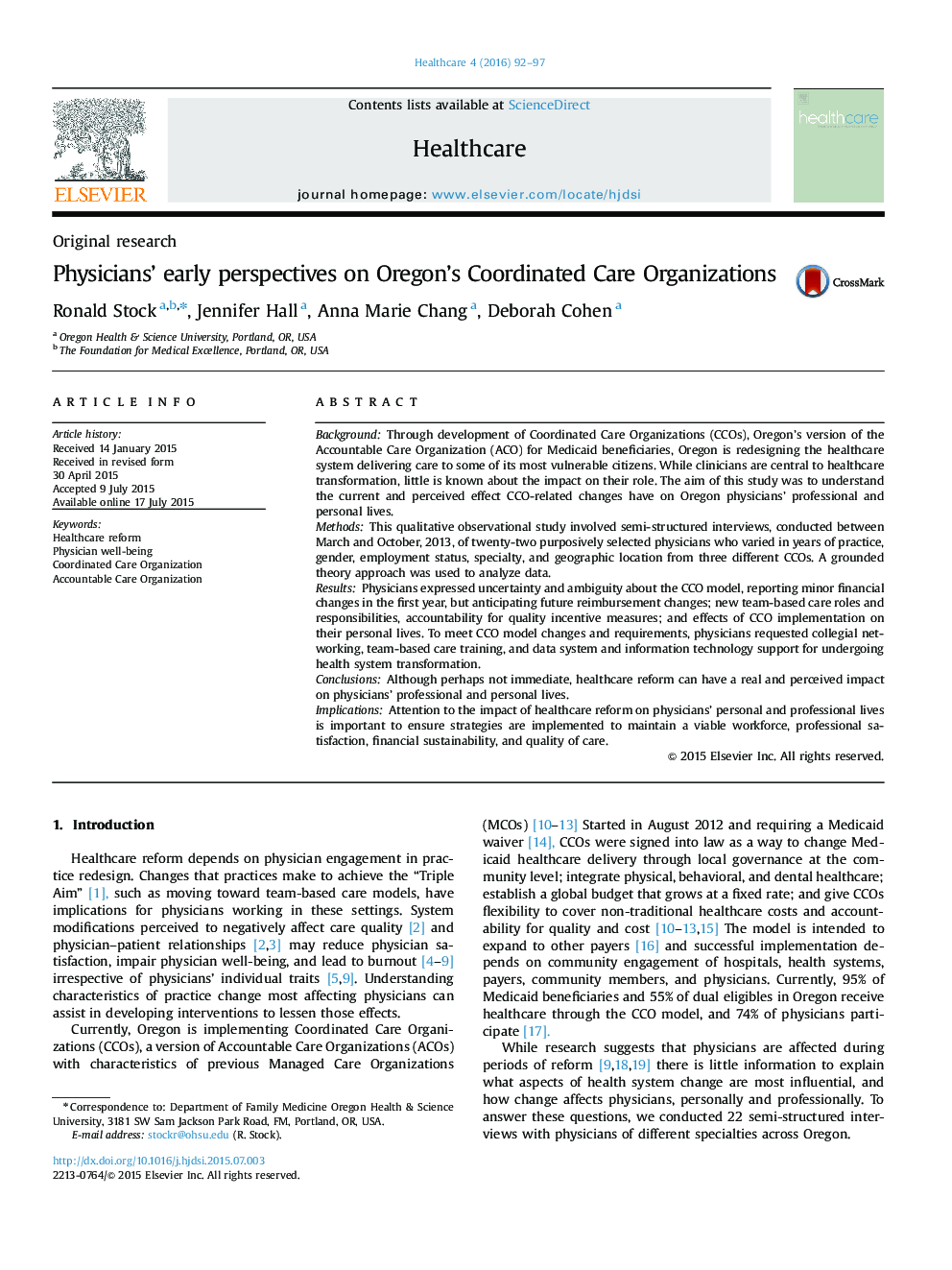| Article ID | Journal | Published Year | Pages | File Type |
|---|---|---|---|---|
| 515366 | Healthcare | 2016 | 6 Pages |
BackgroundThrough development of Coordinated Care Organizations (CCOs), Oregon’s version of the Accountable Care Organization (ACO) for Medicaid beneficiaries, Oregon is redesigning the healthcare system delivering care to some of its most vulnerable citizens. While clinicians are central to healthcare transformation, little is known about the impact on their role. The aim of this study was to understand the current and perceived effect CCO-related changes have on Oregon physicians’ professional and personal lives.MethodsThis qualitative observational study involved semi-structured interviews, conducted between March and October, 2013, of twenty-two purposively selected physicians who varied in years of practice, gender, employment status, specialty, and geographic location from three different CCOs. A grounded theory approach was used to analyze data.ResultsPhysicians expressed uncertainty and ambiguity about the CCO model, reporting minor financial changes in the first year, but anticipating future reimbursement changes; new team-based care roles and responsibilities, accountability for quality incentive measures; and effects of CCO implementation on their personal lives. To meet CCO model changes and requirements, physicians requested collegial networking, team-based care training, and data system and information technology support for undergoing health system transformation.ConclusionsAlthough perhaps not immediate, healthcare reform can have a real and perceived impact on physicians’ professional and personal lives.ImplicationsAttention to the impact of healthcare reform on physicians’ personal and professional lives is important to ensure strategies are implemented to maintain a viable workforce, professional satisfaction, financial sustainability, and quality of care.
